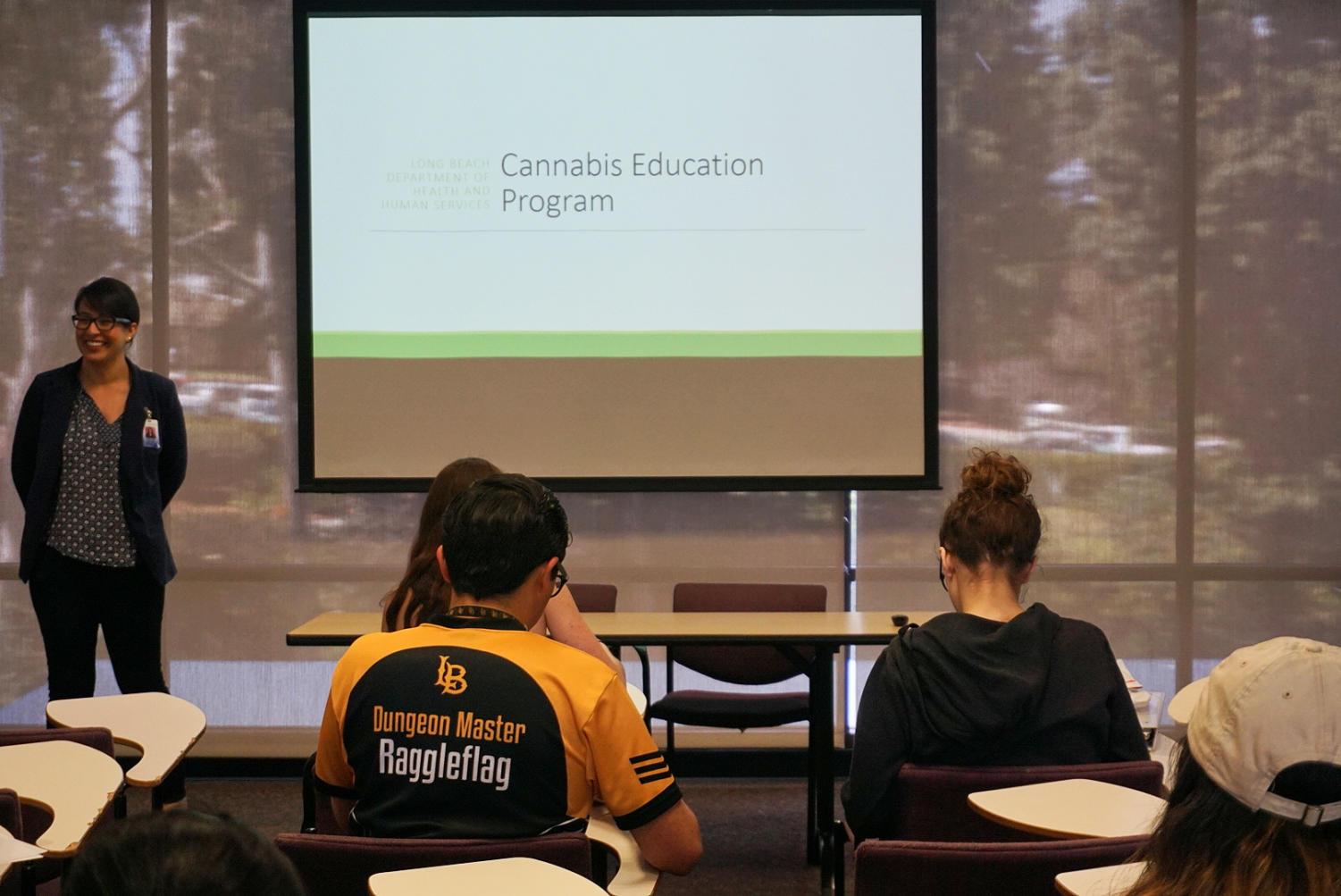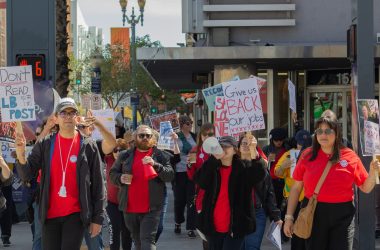All perspectives on the longstanding cannabis debate converged Wednesday as experts and advocates came together to discuss the green debacle.
The event took place in Room 303 of the University Student Union for this week’s Wellness Wednesday, “What’s the 4-1-1 on 4/20: It’s legal, what now?”
This week’s session took a broadly informative approach to tackle the haze surrounding cannabis, address issues including legality, medicinal uses and chemical composure.
Megan Venter, marijuana education program coordinator for Long Beach, took the opportunity to address the city’s response to the legalization of recreational marijuana.
“My role is to make sure that everyone in Long Beach has the information they need to make safe, healthy and legal decisions about cannabis use, whatever it may be,” Venter said. “So our role is to make sure that we’re providing accurate information that we can back up with scientific evidence.”
Also present at the information session was Pam Chotiswatdi, a weed advocacy blogger with a master’s in public health who is fighting the stigma surrounding marijuana. According to Chotiswatdi, the only two chemicals that have a direct effect on consumers are THC and cannabidiol, the remaining compounds being comparable to “taking vitamins.”
“We’re actually in a cool place in history in looking at cannabis because we’re looking at it so close right now,” Chotiswatdi said. “Before prohibition, we Americans used cannabis in our house, we’d go to a pharmacy and tell them we have a stomach ache and they would make us a concoction and usually it had cannabis in it.”
According to both Chotiswatdi and Venter, accumulating accurate and reliable information on the topic is difficult because it is still illegal at the federal level, but students were briefed on the various methods to consume cannabis and the range of effects on the body. This then segued into the demographics of reported use in Long Beach, which included the percentages of users per age group among other things.
Venter compared the percentages of individuals consuming the drug in Long Beach to users in all of Los Angeles County and found that the city itself shows a higher number of reported users than the county. Many users commonly claim they use the active chemicals in the plant, which are THC and CBD, to help treat disorders such as depression, anxiety and insomnia.
“So there is a lot of justification in regards to health, where people are using cannabis to treat things rather than to just get high,” Venter said.
Danica Cruz, intern at Long Beach Department of Health and Human Services, also touched on both the long-term and short-term effects of cannabis use such as memory loss, a delay in brain development and lung diseases.
Another subject covered at the workshop was marijuana DUIs, including the fact that blood tests can be conducted on those who are suspected to be under the influence. According to Cruz, cannabis can stay in the blood for about two weeks, which can ultimately lead to individuals who haven’t been smoking and driving still being charged with a DUI.
Chotiswatdi also warned students on the dangers of “greening out,” or overloading cannabinoid receptors in the brain by consuming too much cannabis. While it is nearly impossible to overdose on cannabis unless over 40,000 milligrams of THC is consumed, it is entirely possible to “over-do” the drug.
“The way to avoid a green-out is to know your dose, not only the amount you’re dosing but what you’re dosing,” Chotiswatdi said. “People don’t have to get so baked; they don’t have to smoke the whole joint; they don’t have to eat the whole cookie.”
Students participated by engaging the speakers in a question and answer throughout the duration of the forum .
“It’s interesting because it is so relevant with what’s going on right now,” said Nicole Lunde, a junior majoring in Health Science. “I appreciate that the school would have a workshop on a topic that has debate. I love that they did the workshop and specifically highlighted some of those differences [between federal and state law] to inform us because you don’t want to get in trouble for something you don’t even know you’re doing wrong.”




